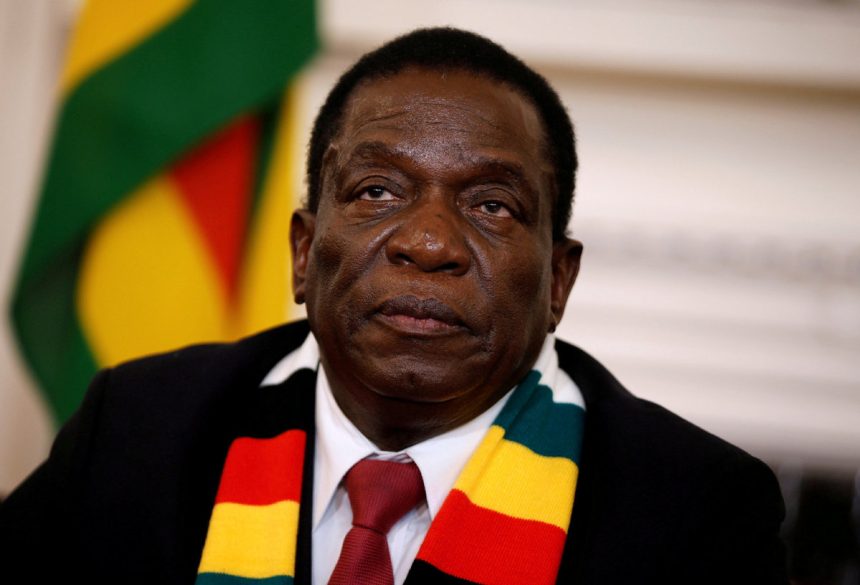Calls are growing within Zimbabwe’s ruling Zanu-PF party to amend the Constitution to extend President Emmerson Mnangagwa’s term, despite legal obstacles.
Mnangagwa, who took over from the late Robert Mugabe through a coup in November 2017, began his first term in August 2018 and started his second term in August 2023. According to the Constitution, this second term is supposed to be his final one.
Godwills Masimirembwa, the chairperson of Harare Province, has proposed extending presidential terms or even removing term limits entirely. “We could explore extending the length of each term or removing term limits altogether,” he suggested.
Zimbabwe’s Constitution, enacted 11 years ago after Mugabe’s fall, includes a term limit provision that opponents now wish to change. An attempt to amend a clause in 2021 aimed to give Mnangagwa greater control over his deputies, but faced significant opposition.
According to Veritas, a watchdog on Zimbabwean laws, any amendment to extend Mnangagwa’s term would need to go through a complex legislative process. This involves publishing the proposed changes, allowing for public input, and securing a two-thirds majority in both houses of Parliament. Additionally, Section 328(7) of the Constitution specifies that term-limit amendments cannot apply retroactively to sitting presidents, making it almost impossible for Mnangagwa to benefit from such changes.
Human rights lawyer Nqobani Sithole warned that even if term extension efforts succeed, they would not apply to the current president, labeling any such attempt a “constitutional coup.”
Despite Mnangagwa’s prior statements about not seeking to alter the Constitution, some provinces and supporters are calling for his term to be extended into 2030 to allow him to complete his development agenda. This push for extension has been echoed in rallies attended by Mnangagwa and his deputies.
The debate over term limits is also seen as potentially undermining Vice President Constantino Chiwenga’s chances of succession. Internal party divisions are evident, with some suggesting Chiwenga’s presidency would be unfavorable.
Critics argue that extending Mnangagwa’s term would further destabilize Zimbabwe’s democracy and mimic the long-term rule seen in other African countries, such as Guinea, where similar attempts led to coups. Dr. Ibbo Mandaza, a Zimbabwean public policy expert, fears that Zanu-PF’s maneuvering could result in more instability, exacerbated by a weakened opposition.
Mandaza noted that the lack of a robust opposition might allow Zanu-PF’s plans to proceed unchecked, but he remains skeptical about Mnangagwa’s ability to secure an extension.





